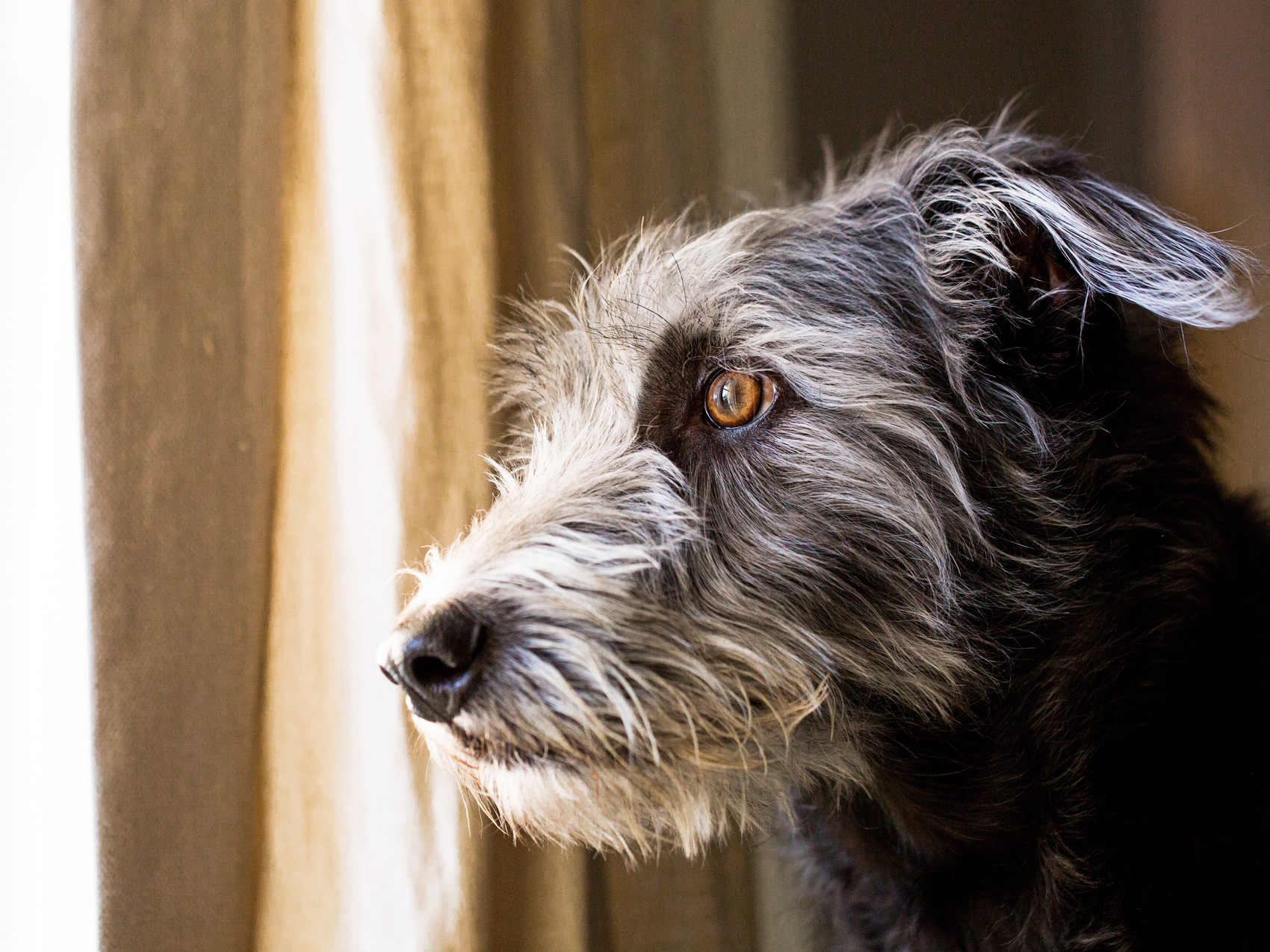in 2019, at almost 14, annie laid in my arms as she passed away peacefully on a sunny fall morning. she had lost feeling in her back legs and despite one exuberant burst of energy trying out a set of dog-wheels, her front legs had also begun to weaken and she wasn’t strong enough to pull herself.
our house was very quiet that afternoon.
“can dogs be sad?” asked my daughter, watching archie stretched out on the bed he shared with annie. he was very still, but not sleeping. after noticing that in the days following annie’s death archie would wander aimlessly, his usually curly tail now hanging down listlessly — bumping into things he had successfully navigated around for years with annie’s help, falling down the stairs and barking in the night — we decided that archie had a broken heart.
“there is a long-standing prejudice against the idea that animals feel deep, complex, or “human-like” emotions such as grief, and this is part of a larger assumption that animals don’t think about or care about or even have much awareness of death,” says bioethicist and writer jessica pierce.
but with growing reports of grieving and what she calls “death-related behaviours” in elephants, cows, chimpanzees, and even crows, pierce, the author of run, spot, run: the ethics of keeping pets and the last walk: reflections on our pets at the ends of their lives, says that we are in a better position to ask the right questions about how animals experience loss.
“the question is not, ‘do animals grieve?’ but ‘how and why do animals grieve?’ she says.
whether or not animals feel is important on a number of levels, pierce points out, the most important one being the implications of the truth of such a statement. after all, if we admit that animals can feel what we feel — grief, sadness, anxiety — whether it’s a household pet, or a cow raised for meat, this acknowledgement makes us accountable for the way we treat them, how we choose to protect them and whether or not we support animal advocates who work to reduce harm and improve their lives.
“if animals feel what we feel, then how we treat them is deeply wrong,” she says.
in their article, do dogs mourn?, veterinarians ryan llera and lynn buzhardt also explore the skepticism around whether or not animals grieve, noting that behavioural changes that may be associated with human-like mourning such as not eating or a decreased interest in play are often written off by critics as “upset” that comes simply from changes to routine, interaction or play time caused by the absence of an owner or the loss of a canine companion — as opposed to a grief response.
but in fact, llera and buzhardt quote study data showing that 36 per cent of dogs experienced a decreased appetite following the loss of a canine companion, with about 11 per cent refusing to eat; some dogs slept more, while others had insomnia; about 63 per cent of dogs vocalized more, while others were quieter than they were prior to their loss of a human companion; and surviving dogs were often more affectionate with their owners after a loss and became clingy.
they also offer tips to help dogs move through grief, suggesting distracting your dog with a walk or a game of fetch, heaping on the affection with lots of eye contact and talking, and inviting your dog’s favourite human or canine friends over for company. and, like humans, medical therapy can help in cases where the dog is having trouble moving through a loss.
it took a couple of months, but archie settled into new routines. by then, we had lost conrad as well — archie was the only pug on the block. and although he didn’t seem to feel the absence of conrad as much as annie, by how slowly he would climb the stairs at the end of the day as if he almost didn’t see the point and his lack of interest in his favourite liver treat told me he was a little lost. so last november, we added ezekiel (zeke) — a bouncy brindle boxer mix that was found in a plastic bag with his litter mates — to the family.
and while i can’t say archie was completely overjoyed at having an exuberant puppy constantly sneaking up behind him for a romp, his furry tail is curled up once again, he has put on a few pounds and at night, he can be found fast asleep, snoring loudly next to zeke.
so say what you want about animals and their capacity to feel grief and to mourn — in our house, our dogs have taught us a lot, not only about understanding loss, but also the wonder of resilience and the value of a good snooze.
this story appeared in the healthing weekender. click here to subscribe.
 5 minute read
5 minute read









